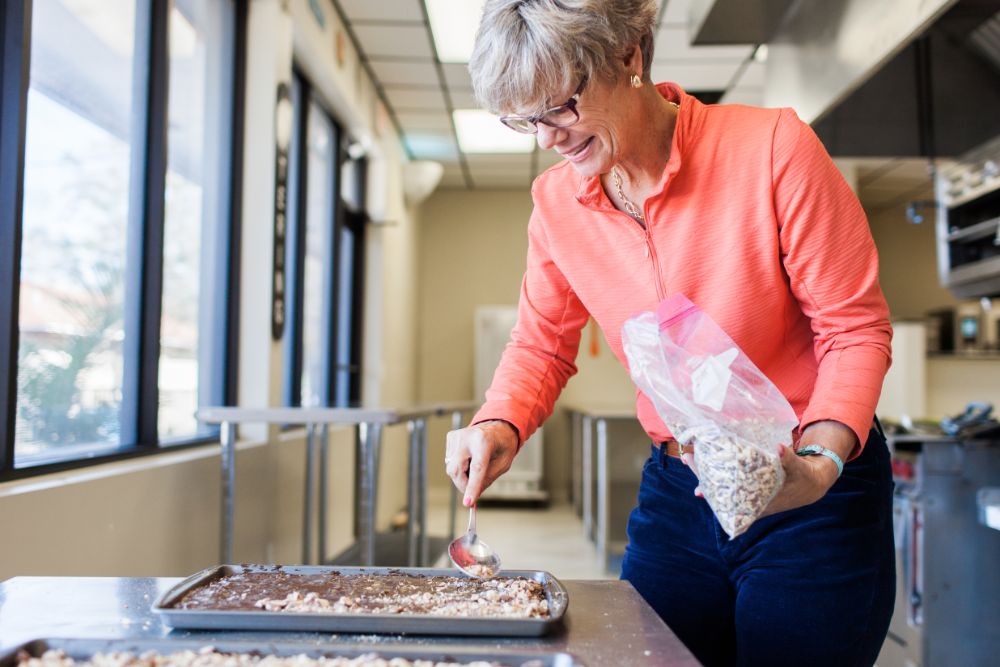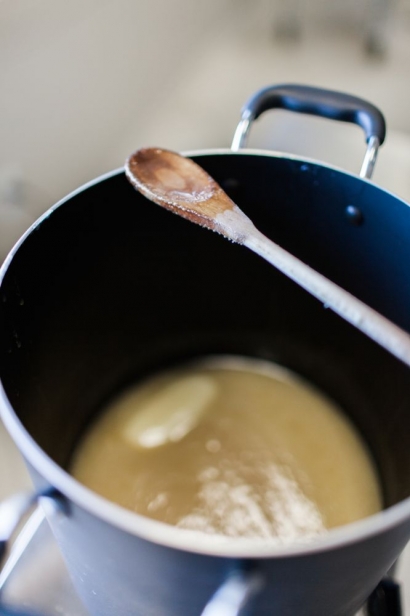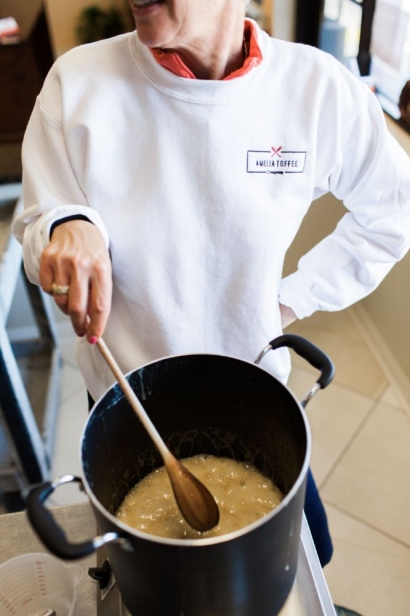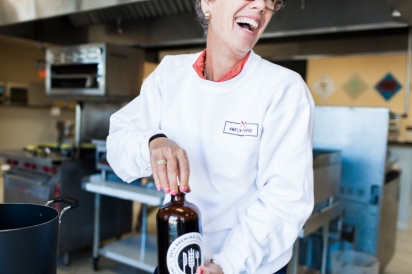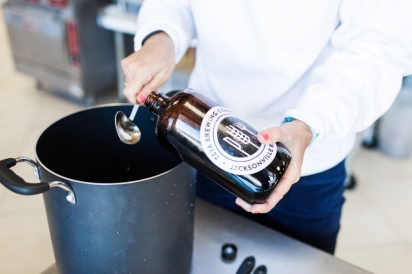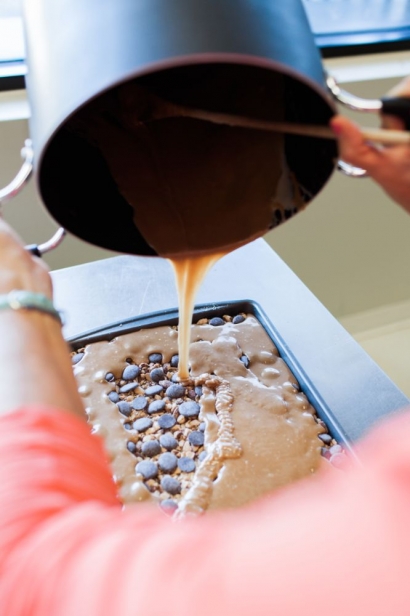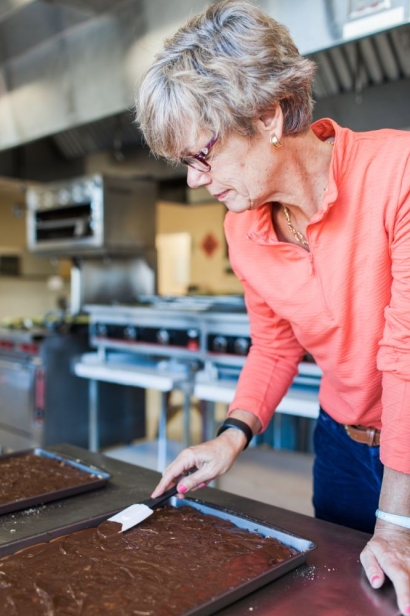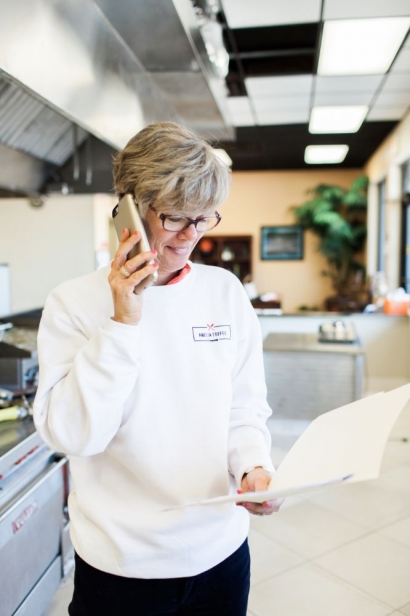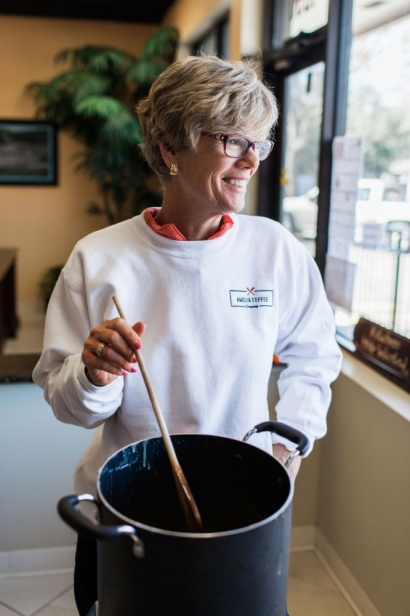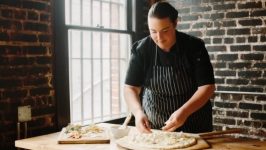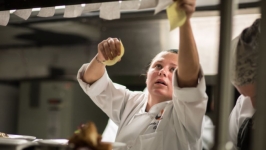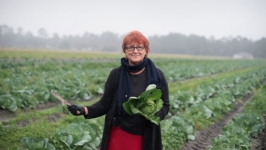Female Entrepreneurs in Edible Enterprises
Food can be quite seductive. It’s the stuff that nourishes, entertains and delights us throughout the day. We respond to aromas from the kitchen or provocative displays in retailer windows and experience sensual pleasure from both cooking shows and the pages of culinary magazines.
Professionally, food creates careers that include farmers, bakers, artisans, servers, food scientists, nutritionists, educators, bartenders, chefs, caterers and restaurateurs. For people who love to talk about food, there are journalists, bloggers, writers, broadcasters and policymakers.
Nationally, Julia Child, Alice Waters and Ruth Reichl among others have changed the way we relate to food. From a corporate perspective, Irene Rosenfeld, chairman and CEO of Mondelez International; Indra Nooyi, chairman and CEO of PepsiCo; Denise Morrison, CEO of Campbell Soup; and Margaret Hamburg, commissioner of the U.S. Food and Drug Administration have become some of the most influential women in food manufacturing and branding.
According to recent statistics, women account for nearly 30% of small business operations with 90% having no employees other than the owner. In other words, there are a lot of pioneering women out there, running things on their own and working tirelessly to build successes for themselves. In many cases, it’s as much about managing a business as it is about loving food.
In Northeast Florida, we are seeing plenty of women abandoning long-held corporate careers in favor of going into business baking cakes, brewing coffee, canning preserves and serving up all kinds of deliciousness. Have you ever wondered what goes on behind the scenes? Lots of passion, sweat and grease, apparently, along with networking, perseverance and a willingness to learn and work hard.
For the women who have chosen careers specifically in culinary, sometimes the desire to work with food started at home—when cooking with Mom was one of life’s special pleasures. Coupled with an undeniable love of food, homemade products that have family and friends constantly clamoring for more and sufficient resources to support a new enterprise, culinary brands are born.
To meet some of these intrepid individuals, simply visit a farmers’ market or arts and crafts show. This is where producers, armed with little more than a good recipe and an unshakable entrepreneurial spirit, execute their first leaps of faith into the world of food retailing.
What’s remarkable is that very few started out with food-oriented agendas. In fact, their careers are owed more to unexpected circumstances and a touch of good fortune.
For living proof, take Rummies & Yummies at the Riverside Arts Market (RAM) in downtown Jacksonville. Co-owned by Amy Hales and Mary Moses (Amy’s mom), the rum cakes they once baked together exclusively for family and friends have become a full-time commercial endeavor. The decision to start the company, however, was not easy. Although Amy loved her work in the corporate world, the dilemma was clear: Either continue working in excess of 80 hours a week at the office and maintain the road warrior lifestyle, or work locally, be with family and enjoy priceless time with her newborn son.
Starting off slowly at arts and crafts shows, with her mom coming out of retirement to pitch in and getting help from the Small Business Administration (SBA.gov) and American Business Women’s Association (ABWA.org), Amy learned what it would take to generate sales. While signing a lease on commercial space and taking out loans for equipment was nerve wracking, and a financial loss would be devastating, the benefits have far outweighed the risks. Today, Amy and her family spend countless hours together, her son has a place for his toys at the office (and visits frequently) and business is growing.
RAM has also helped Crystal Israel launch her line of small-batch handmade jams and jellies under the Little Black Box brand. When asked about leaving her career in hospitality management, Israel says, “It was almost suffocating going to work building someone else’s dream. I wanted to build my own brand.”
Little Black Box initially started out as a line of Southern-inspired sweet baked goods including Hummingbird Cakes and Sweet Potato Pies. While making jams and jellies to use as fillings, it became apparent that these fruit-based items would sell well all by themselves. With this revelation, the company was reorganized and is now focused entirely on shelf-stable products. This includes jams and jellies along with a new line of sauces and relishes, proving that flexibility and adaptability are key skills required to run a business. Although still in its infancy, Little Black Box has found a strong retail following at local markets as well as a growing wholesale customer base.
Willingness to adapt is a valuable trait for any entrepreneur, as Lizbeth Earnest, founder and president of Chef’s Garden, can attest. According to Earnest, “I started out as a hairdresser but have always enjoyed cooking and entertaining.” The moment of truth came after watching an episode of “Oprah” featuring women who created successful businesses from things they loved. Seeing this, Earnest decided the time had come to pursue a career in catering. After 14 years, and partnering with her daughter since 2005, she heads up Chef’s Garden, the Cummer Café and is part owner of the Candy Apple Café.
While these women, and many others, have launched their food businesses based upon rave reviews and support from family and friends, others have transitioned into culinary careers with little to no experience.
Previously, Anita Comisky enjoyed a stellar career as an accountant. She freely admits she’s not much of a cook and is poorly suited for entertaining. That being said, she makes a killer toffee that has been in her family for generations. She likes to say, “In some families, they boast a world-famous meatloaf. In our family, it’s toffee.”
After a chance meeting with a well-established distributor, and support from other culinary professionals (including the Women’s Food Alliance), Anita launched the Amelia Toffee brand. What transformed her business into a truly robust brand, however, was the suggestion that she use alcoholic beverages as featured ingredients. While this meant violating her long-held family recipe, the outcomes were surprisingly delicious. With ingredients including locally sourced stout beer, green tea and distilled spirits, Anita’s toffees have found year-round acceptance in both local and select regional markets.
If you have a hankering to start your own food enterprise, don’t forget that working with food is hard work, as all of these women can attest. If you have a romantic notion of what it is like to run a food business, based on how much enjoyment you get from cooking for family or friends, check in with any of these entrepreneurs. Listen to their tales of manual labor and long hours, wearing all the different hats needed to support and sustain a business. You may be willing to take on the risks and rewards associated with a food business. Or you may just decide to appreciate what comes out of the kitchens of all those who have pursued their food enterprise dreams.


